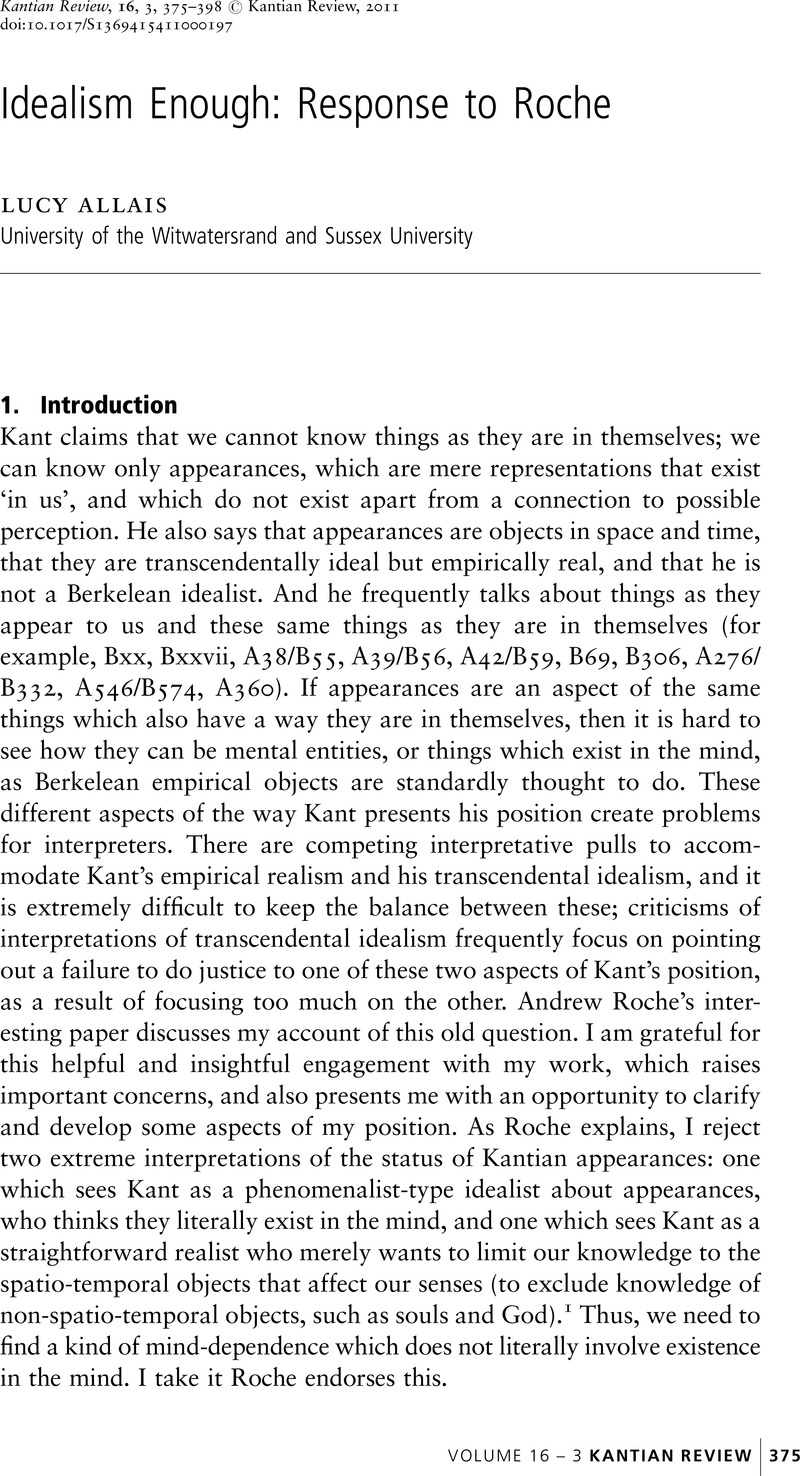Crossref Citations
This article has been cited by the following publications. This list is generated based on data provided by Crossref.
Stephenson, Andrew
2015.
KANT ON THE OBJECT-DEPENDENCE OF INTUITION AND HALLUCINATION.
The Philosophical Quarterly,
Vol. 65,
Issue. 260,
p.
486.
McLear, Colin
2016.
Kant on Perceptual Content.
Mind,
Vol. 125,
Issue. 497,
p.
95.
Gomes, Anil
2016.
Naïve Realism In Kantian Phrase.
Mind,
p.
fzw009.
Oberst, Michael
2018.
Kant, Epistemic Phenomenalism, and the Refutation of Idealism.
Archiv für Geschichte der Philosophie,
Vol. 100,
Issue. 2,
p.
172.
Ritter, Bernhard
2020.
Kant and Post-Tractarian Wittgenstein.
p.
69.
Matherne, Samantha
2024.
Seeing More.



